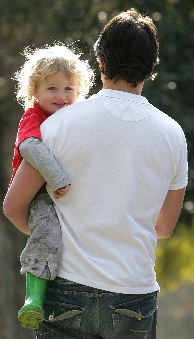publication date: Jan 25, 2011
|
author/source: Anne Coates

Most of us try to be the
best parents we can be and our
parenting styles are influenced by our
culture, family, religion and so on or are a
reaction to the way we were parented. If you had very
strict parents you may have decided to be exactly the
opposite.
Psychologists have divided
parenting styles into three broad
categories: authoritarian, permissive and authoritative.
Authoritarian parents are those who ry to exert
control over their children. Their standards of
conduct are strict and they are
critical of lapses. When they tell
children what to do they tend not to
explain why. They may be the type of parents who
withold their love and affection if a child
misbehaves and they focus on the
misdemeanours rather than
good behaviour.
Permissive parents are unlikely to set rules and are often
inconsistent in their reactions. The opposite of
authoritarian parents they accept a
child's behaviour – good or bad – and are warm and loving. They want their
offspring to make their
own choices even when they are too young or
immature to do so.
Authoritative parents focus on their child's
good behaviour and give clear
guidelines as to what is expected in a warm and
loving manner, explaining why some behaviour or action is wrong in an
age-appropriate way. These parents also allow a child to
make choices based on their abiity.
An illustration of parenting styles A child is
disputing what to
wear for school. An
authoritarian parent would would brook no argument, a
permissive one would let the child wear what he wanted while the
authoritative parent would offer the child a
choice of say two approriate garments.
Research shows that
children develop and progress better when
parents are authoritative and a
loving bond is central to the
parent-child relationship.